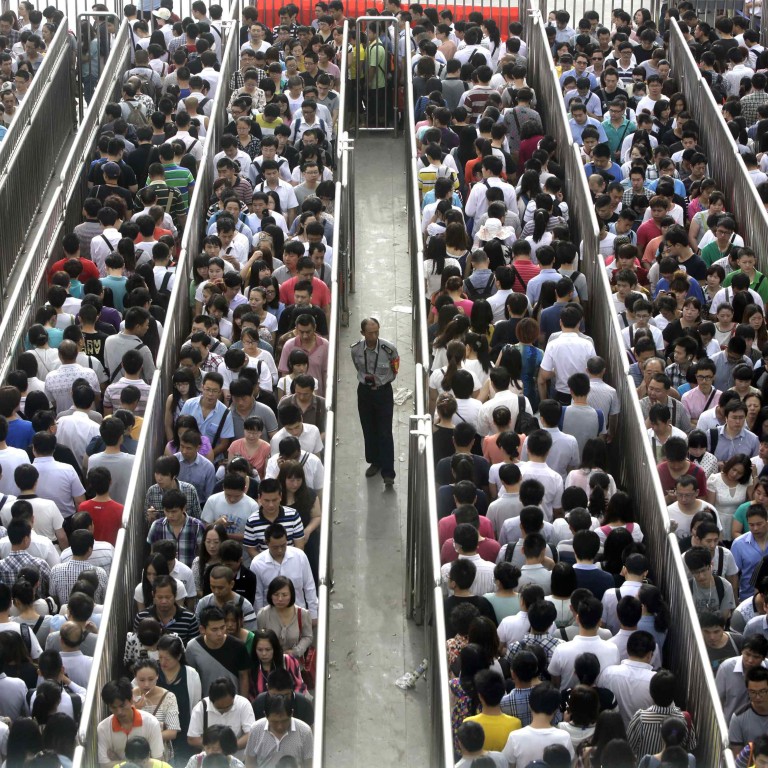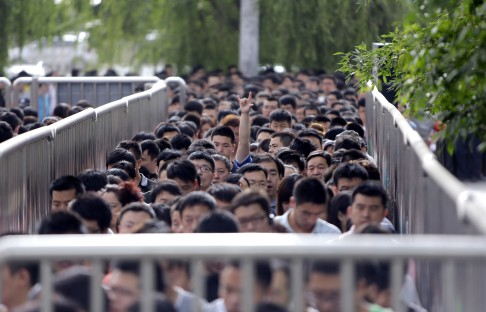
New | Long queues facing commuters as Beijing heightens anti-terror measures
Beijing subjected rush-hour passengers to an extra layer of security checks and gave orders allowing SWAT teams to shoot terrorists on sight, as it ramped up policing after a string of attacks on the mainland.
This morning, hundreds of passengers queued up in security lines outside nine key subway stations in Beijing, where metro staff were waiting with body-scanning equipment. This marks the second working day since the extra layer of security was put in place last Saturday.
Previously, only bags and luggages were subjected to scans.
The new measures exacerbated the long waiting times and queues for subway passengers, especially for those living on the outskirts of Beijing who are heavily reliant on the transportation allowing them to commute from home to their offices downtown.
What’s more, the scenes, described by some as “people in a cage”, prompted some to express concerns of the large crowds being hazardous or vulnerable to potential terrorist attacks.

“With such a dense crowd, it could easily become a target of a terrorist attack. Also due to the fences, panic could lead to a stampede,” said another.
However, many others said the security checks were the best method available to deter and prevent potential terrorist attacks in subways.

“We were given twice as many bullets as usual,” Xia Xiongwei, a SWAT team leader, was quoted as saying.
The Chinese government launched a one-year anti-terror campaign last Sunday, after three deadly bombings rocked China’s western provinces of Xinjiang and Yunnan recently.

Xinjiang has already captured 200 suspects allegedly part of 23 terrorist or extremist groups during a raid on Sunday in the Hetian, Kashgar and Aksu prefectures, state news agency Xinhua said.
In Chengdu, capital of western Sichuan province, more than 8,000 police officers were sent to patrol the streets, the Huaxi Metropolitan Daily reported.

In the southwest province of Guizhou, some 300 people were arrested in raids on supposed terror hotspots.
It sent 24,000 uniformed and plain-clothes police officers at the weekend to inspect small hotels, slums, internet cafes, entertainment venues and baths where “criminals and terrorists tend to hide”, the Guiyang Evening Newsquoted the province’s public security department as saying.
Neighbouring Yunnan province has distributed 80,000 anti-terror booklets to the public, with guidelines on how to identify terrorists and how citizens can protect themselves, Xinhua said.
Additional reporting by Chris Luo


